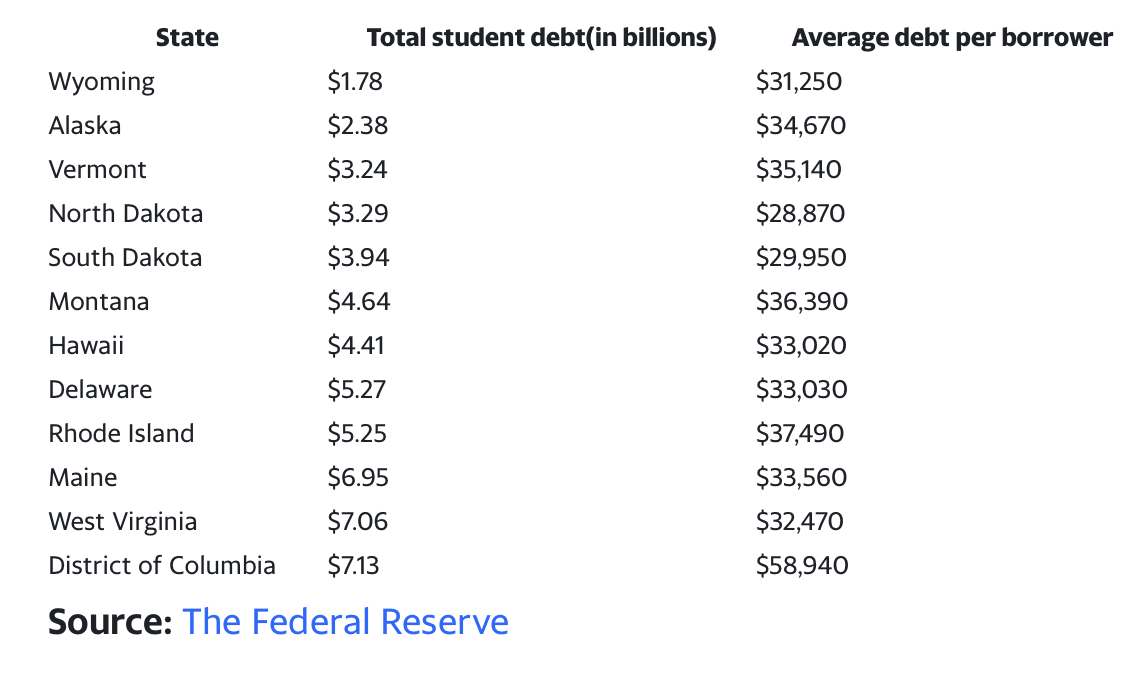Colorado's Student borrowing Crisis: How Returning Student Loan Payments Threaten Financial Stability for 800,000 Residents
Colorado has not been spared from the student loan debt crisis. Currently, nearly 800,000 Coloradans are grappling with federal student loan payments that have resumed this month after a three-year pause. Loans that for many, in retrospect, should not have been granted considering the barrowers earning power even after graduation.
As the state's economy fully recovers from the pandemic, experts warn that the resumption of student loan payments may add to the financial strain of many Coloradans. This is because most borrowers, especially younger individuals, have lower incomes and may struggle to make ends meet while juggling their loan payments.
All states have student loan debt. How high that number can be due to factors like the number of institutions, the number of public vs. private schools, the cost of living and the number of students. The state with the highest student loan debt is California and the state with the lowest student loan debt is Wyoming. State student loan debt runs from $152.82 billion to 1.78 billion in Q4 in 2022. (Source: The Federal Reserve)
According to data from the Federal Reserve, as of June 30, 2022, Colorado residents owe a staggering $29.4 billion in student loan debt, with an average individual debt of $37,000. This is on par with the national average, which highlights the widespread impact of this issue.
While people in their mid-20s to mid-30s make up the largest share of borrowers in the state, it is the slightly older demographic, between 35 and 49 years old, who owe the most as a group, with nearly $12 billion outstanding. This further highlights the long-lasting impact of student loan debt on individuals and families, even after their college years.
As the first payments begin to come due, the Department of Education has launched a new federal plan called the "SAVE Plan," which offers income-driven repayment options for borrowers. This will help ease the burden for those with lower incomes and families to support.
Additionally, the Biden administration has announced a yearlong "on-ramp period," during which borrowers who may struggle to make payments will not be reported to credit bureaus. This is a temporary measure to help borrowers during the ongoing pandemic and recovery phase.
It is clear that student loan debt is a pressing issue in Colorado and across the country. As the federal government works to address this issue, it is important for individuals and families to consider the costs of higher education and make informed choices about their financial future before taking out student loans.
